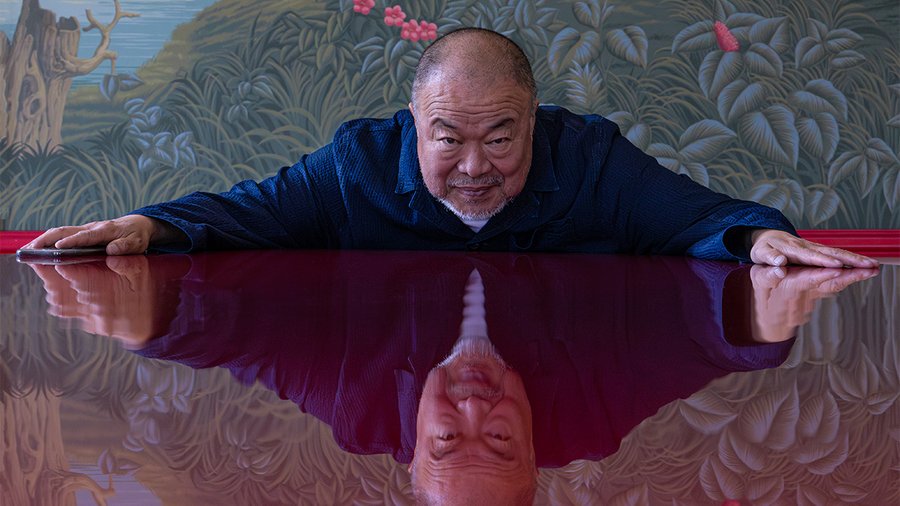Renowned Chinese artist and activist Ai Weiwei discusses the intersection of art, human rights, and the essential role of cross-cultural dialogue in achieving global peace
Ai Weiwei is a prominent Chinese contemporary artist and activist known for his provocative works that challenge political and social norms. He has a diverse portfolio encompassing sculpture, installation, photography, and architecture, often addressing themes of human rights and freedom of expression. He gained international recognition for his role in designing the Beijing National Stadium ("Bird's Nest") for the 2008 Olympics and his outspoken criticism of the Chinese government, which led to his detention in 2011. Currently based in Europe, Ai continues to use his art to advocate for social justice and human rights on a global scale.
Audrey Plimpton, Communications Associate: Your work often blends social and political messages with artistic expression. How do you balance the demands of creating aesthetically compelling art with the urgency of addressing pressing human rights issues?
Ai Weiwei: I think that all human rights issues are related to aesthetic judgment and also non-aesthetic judgment. Moral judgment is essential for art. It is never separated. I don't believe you can separate art just for so-called art's sake. I don't think that there is such a thing. I think all art is political and it's just in different levels and different ways.
AP: Can you explain how art can be a tool for peacebuilding and share examples of how your art has contributed to peace initiatives or reconciliation efforts?
AW: I think art is defending humanity. Only because we are human [do] we appreciate the activities of art or literature. Maybe birds or fish also like beauty. But whatever we do, we are trying to defend humanity, which is about basic rights. It's about freedom of expression. It's about who we are and why we are here. All those things can never be separated. That's why I think what I'm doing as an artist is always trying to examine [whether] my work helps humanity or if it is just for some other benefit. This is [what] we always have to ask.
AP: What do you believe are the most urgent human rights issues in the international community today? How can your art contribute to those?
AW: I think we have to realize [that] we [are] all human beings, and we all have a period of time to live. If we value our life, we have to respect other people's lives. This is inseparable. We just have to believe we have the ability and the intelligence to make the world at peace. We do not need any war. We need to talk and we need a peaceful solution. We need to to make different groups respect each other. That's all we need to do. Without doing that, I do not think there is going to be a bright future. My artwork is always defending humanity and trying to insist on human conditions, human rights, and freedom of expression.
AP: Here at Salzburg Global, we focus on addressing complex global challenges through cross-cultural dialogue. How do you see the role of cross-cultural dialogue in your work, and how can artists and activists collaborate effectively on a global scale to promote human rights and social change?
AW: I think in today's world, we look across culture or it's effects. It's more inevitable, even with new technology and globalization. We realize more and more there is a unity. The communication between different languages, different cultures, or religions is more important than ever. That's the only way to avoid conflicts [like] war or disasters. So I think this kind of communication and these kind of discussions are more important than ever.
Watch the full video interview with Ai Weiwei on our Salzburg Global Instragram here:
Ai Weiwei spoke at an event alongside James S. Snyder and Martin Weiss. This event was organized under the auspices of Salzburg Global Seminar - Austria.


